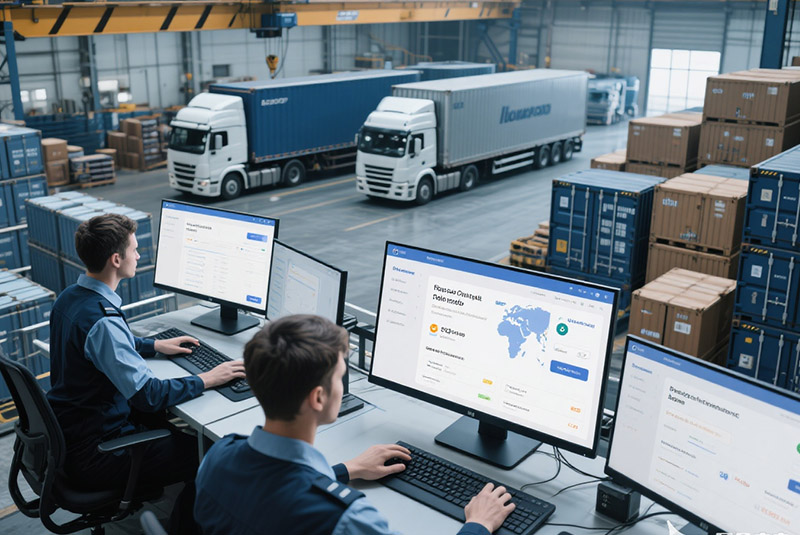In the following article, we’ll explain the key differences between freight types. Reading through the following pages, you’ll also learn who must pay these costs, depending on the conditions of the freight transport. Basically, shipping costs are the cost of moving goods from location A to location B. There are different types of freight, and depending on the type, the costs will cover different aspects of the transport. The simplest way to categorize shipping costs is to divide them into landside costs and ocean freight costs:
- Ocean Freight – The cost of shipping goods by sea. There are different types of freight. It can be port-to-port, door-to-door, and a variety of other services. Typically, your ocean freight charges will be based on the volume of your cargo (measured in cubic feet). Here are the most common ocean freight charges:
- Ocean freight
- Fuel Adjustment Factor (BAF).
- International Ship and Port Facility Security (ISP)
- Surcharge
- Currency Adjustment Factor (CAF)
- The costs of overland shipments can be divided into subcategories. These can be customs, road, and rail, among others. Each of these categories has its own costs. For example:
- Terminal handling charges
- Terminal Fees
- transporter
- Chassis usage surcharge
The party that pays these fees is entirely up to the buyer and seller. However, they typically decide this using international commercial terms, based on a set of rules defined by the International Chamber of Commerce. This allows them to agree on specific terms for a given shipment.
CONTACT US
Fees associated with FOB include:
- THC
- Bill of lading
- Pre-shipment costs
- Other service fees
Key three is a clear and mutual understanding between the buyer and the carrier about who is responsible for paying which charges. This is best agreed before shipment to prevent any confusion.
11 Shipment Terms Defined Under the Incoterms
There are 11 main terms defined by Incoterms. These are useful and important terms as they allow both parties to conduct their part of the job, without confusion and with a sense of security that conditions will be matched. Generally the term will be specifically used and changed depending on the exact business transaction and its location. For instance FOB Hamburg and so on.
Ex Works (EXW) – The Seller provides a notice for the Buyer as to when the goods are ready. The seller’s only responsibility is to provide the goods for pickup by the Buyer. The Buyer then takes all responsibility for additional charges as well as delivery of the goods.
Free Alongside Ship (FAS) – This is a term only applied during water transport. The Seller has all responsibility until the goods have reached the port of destination. From here on all responsibility is taken over by the Buyer.
Cost of Freight (CFR) – This too is only applicable to waterway shipping. Here the Seller pays all necessary costs in order to bring the goods to the agreed upon port. The Buyer then takes over the responsibility of: loading of goods, transportation and import.
Free Carrier (FCA) – After agreeing on the location on the Seller’s side, the Seller will be responsible for loading the goods. Then the transport, risk of loss and additional freight charges then will shift to the Buyer.
Cost Insurance and Freight (CIF) – It is very similar to CFR. The main difference is that the Seller must obtain insurance in case of damage or loss of goods.
Free on Board (FOB) The term is always followed by the name of the port where the goods are transported (f.e.: FOB Boston). This too is only applicable to waterway shipping. The Seller pays for and is responsible for loading the goods onto trucks or other means of transport. Then the responsibility shifts to the Buyer.
Carriage Paid To (CPT) – A location is agreed on the Buyer’s side. After which the responsibility of the import is the Buyer’s. The Seller is responsible for transport, freight charges, exporting obligations and risk of loss as well.
Delivered at Terminal (DAT) – A terminal, or a specific point within a terminal is named by the Buyer and the Seller on the Buyer’s side. Apart from import and unloading responsibilities, everything else falls onto the Seller.
Carriage and Insurance Paid (CIP) – A place is named on the Buyer’s side. The seller will prepare the freight here. The seller is responsible for every single aspect of the transaction apart from unloading the goods from the final vessel.
Delivered at Place (DAP) – A specific place of destination is named by the Buyer. The goods will be delivered here and apart from import and unloading obligations, the Seller carries all other responsibilities.
Delivered Duty Paid – (DDP) – The parties assign a stipulated location for the Buyer. Here all goods will be delivered. The only responsibility the Buyer has is unloading the goods at the end of the transaction.
Commonly Used 3 Incoterms
The above 11 definitions are useful to see all options. However 3 noteworthy terms are FOB, CIF and EXW. These terms are commonly used. Their main difference is that while using Ex Works, the Buyer covers most charges, when going with Cost Insurance and Freight, and Free on Board shipping terms, the Seller needs to cover the majority of the expenses. Out of the 3, CIF will be the most costly though. There will be additional charges such as: costs of arrangement.
Freight Services Process Simplified
International shipping can be a complex process, especially with regard to documentation, regulations, and routing decisions, customs clearance, and tax, so let us use our skill and 12 years of expertise to take care of it for you!
We can step in to make your international shipping process smoother and easier, allowing you to focus on your business.
We do it all. So you don’t have to.
No matter your industry or business size, China Freight as transport operators can help. We have teams of experts dedicated to serving Canada-based importers like you.
We do it all- freight forwarding, e-commerce logistics, customs clearance, or warehousing, from origin to destination. We want to help alleviate your stress, support your business, and keep you ahead of the competition in your industry.
CONTACT US










